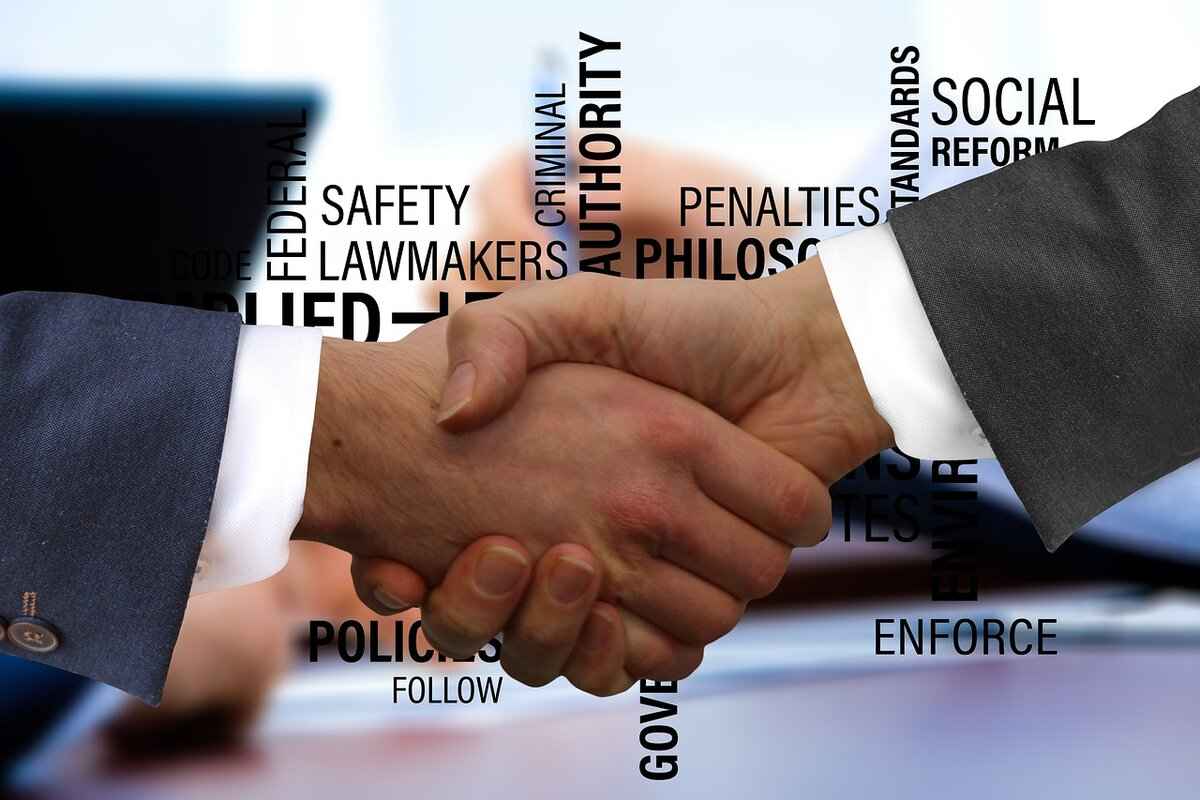This article explores the protection of personal data during legal proceedings in the United States, examining relevant laws, best practices, and implications for individuals involved in litigation. As the digital age advances, the importance of safeguarding personal information becomes ever more critical, especially within the context of legal disputes.
Understanding Personal Data Protection
Personal data protection encompasses the measures implemented to secure individual information from unauthorized access or disclosure. Protecting this data is vital not only for maintaining privacy but also for upholding the integrity of the legal process. Individuals involved in litigation must be aware of their rights regarding personal data and the mechanisms available to protect it.
Legal Frameworks Governing Data Protection
In the U.S., various laws govern personal data protection, including the Privacy Act of 1974 and state-specific regulations. Understanding these frameworks is essential for recognizing how they influence legal proceedings.
- The Privacy Act of 1974: This act regulates how federal agencies manage personal information, ensuring individuals have rights over their data. It is particularly relevant in cases involving federal litigation.
- State-Specific Data Protection Laws: Many states have their own data protection laws that may offer additional safeguards. For instance, California’s Consumer Privacy Act (CCPA) provides robust protections for residents’ personal data.
Implications of the Federal Rules of Civil Procedure
The Federal Rules of Civil Procedure (FRCP) dictate the conduct of civil litigation. These rules intersect with personal data protection, mandating that parties must disclose certain information while also providing mechanisms to protect sensitive data.
Confidentiality Agreements and Protective Orders
Confidentiality agreements and protective orders are essential tools in litigation to safeguard sensitive information. They serve to limit the dissemination of personal data involved in legal disputes.
- Drafting Effective Confidentiality Agreements: A well-crafted confidentiality agreement is crucial for protecting personal data. It should clearly define what constitutes confidential information and the obligations of all parties involved.
- Enforcing Protective Orders: Protective orders can restrict access to sensitive information during litigation. Understanding the process of obtaining and enforcing these orders is vital for individuals seeking to protect their data.
Data Breaches and Their Consequences
Data breaches can occur during legal proceedings, leading to the unauthorized exposure of personal information. The consequences can be severe, including identity theft and reputational damage. Affected individuals may seek legal recourse to address these breaches.
Best Practices for Protecting Personal Data
Individuals involved in legal proceedings should adopt proactive measures to safeguard their personal data. Here are some best practices:
- Utilizing Secure Communication Channels: Employing encrypted communication methods is essential for sharing sensitive information securely.
- Limiting Information Disclosure: Minimizing the amount of personal information disclosed during legal proceedings helps reduce the risk of exposure.
The Role of Legal Counsel in Data Protection
Legal counsel plays a critical role in ensuring the protection of personal data throughout legal proceedings. Attorneys are responsible for advising clients on their rights, drafting confidentiality agreements, and advocating for protective orders when necessary. Their expertise is crucial in navigating the complex landscape of data protection laws and ensuring compliance.
In conclusion, understanding the intricacies of personal data protection during legal proceedings is essential for individuals involved in litigation. By being informed and taking appropriate steps, one can significantly mitigate the risks associated with data exposure.

Understanding Personal Data Protection
Personal data protection is a crucial aspect of modern society, encompassing the strategies and measures implemented to ensure that individuals’ private information is shielded from unauthorized access, misuse, or disclosure. The significance of safeguarding personal data cannot be overstated, especially in an era where data breaches and cyber threats are increasingly prevalent.
Key Concepts of Personal Data Protection
- Data Privacy: This refers to the appropriate handling of personal information, including its collection, storage, and sharing. Individuals have the right to know how their data is used.
- Data Security: This involves the technical measures and protocols established to protect data from breaches and unauthorized access. It includes encryption, firewalls, and secure access controls.
- Consent: Obtaining explicit consent from individuals before collecting or processing their data is a fundamental principle of data protection laws.
The Importance of Protecting Personal Data
The protection of personal data is vital for several reasons:
- Trust: Individuals are more likely to engage with organizations that demonstrate a commitment to safeguarding their data. Trust is essential for maintaining customer relationships and loyalty.
- Legal Compliance: Failing to protect personal data can lead to legal repercussions, including hefty fines and lawsuits. Organizations must adhere to various data protection regulations to avoid these consequences.
- Reputation Management: Data breaches can severely damage an organization’s reputation. Protecting personal data helps maintain a positive public image.
Best Practices for Personal Data Protection
To effectively safeguard personal data, individuals and organizations should implement the following best practices:
- Regular Audits: Conduct regular audits of data collection and processing practices to ensure compliance with data protection laws.
- Employee Training: Provide training to employees on data protection policies and the importance of safeguarding personal information.
- Data Minimization: Only collect data that is necessary for specific purposes, reducing the risk of exposure.
Conclusion
In conclusion, understanding personal data protection is essential for individuals navigating today’s digital landscape. By recognizing the importance of safeguarding personal information and implementing robust data protection measures, individuals can better protect themselves from the risks associated with data breaches and unauthorized access. As technology continues to evolve, so too must our strategies for ensuring the security and privacy of personal data.

Legal Frameworks Governing Data Protection
The protection of personal data is a growing concern in today’s digital age, especially during legal proceedings where sensitive information may be disclosed. In the United States, various laws and regulations govern how personal data is handled, particularly in the context of litigation. This section delves into the legal frameworks that provide guidelines for data protection, highlighting their significance for individuals involved in legal matters.
Understanding the GDPR and Its Impact
The General Data Protection Regulation (GDPR) is a comprehensive data protection law that applies primarily to European Union citizens. However, it also impacts U.S. entities that handle the personal data of EU citizens. This regulation mandates strict guidelines for data processing, including the necessity of obtaining explicit consent from individuals and ensuring the right to access and erase personal data. For U.S. organizations, compliance with the GDPR is not just a legal obligation but also a crucial aspect of maintaining trust and credibility with clients and customers.
Federal Laws on Data Protection
In addition to the GDPR, several federal laws govern data protection in the U.S. One of the most significant is the Privacy Act of 1974, which establishes rules for federal agencies regarding the collection, maintenance, and dissemination of personal information. This act aims to protect individuals from unauthorized access to their data, making it particularly relevant in legal contexts where federal agencies may be involved.
State-Specific Data Protection Laws
Many states have enacted their own data protection regulations, which can vary significantly from one jurisdiction to another. For instance, California’s California Consumer Privacy Act (CCPA) grants consumers extensive rights over their personal information, including the right to know what data is being collected and the ability to opt out of its sale. These state-specific laws play a crucial role in legal proceedings, as they often dictate how personal data must be handled and protected during litigation.
Implications of the Federal Rules of Civil Procedure
The Federal Rules of Civil Procedure outline the processes and procedures for civil litigation in federal courts. These rules intersect with personal data protection by establishing guidelines for the discovery process, which can involve the exchange of sensitive information. Legal professionals must navigate these rules carefully to ensure compliance while protecting the privacy rights of their clients.
Confidentiality Agreements and Protective Orders
To safeguard sensitive information during legal proceedings, attorneys often utilize confidentiality agreements and protective orders. Confidentiality agreements are contracts that restrict the sharing of confidential information between parties. Protective orders, on the other hand, are court-issued directives that limit access to sensitive data. Both tools are essential for maintaining privacy and minimizing the risk of data breaches during litigation.
Best Practices for Data Protection
- Utilizing Secure Communication Channels: It is vital to use encrypted communication methods when sharing sensitive information to prevent unauthorized access.
- Limiting Information Disclosure: Legal professionals should advise clients on the importance of disclosing only the necessary information to minimize exposure.
The Role of Legal Counsel in Ensuring Data Protection
Attorneys play a critical role in protecting personal data during legal proceedings. They are responsible for advising clients on their rights regarding data privacy, ensuring compliance with relevant laws, and implementing best practices to safeguard sensitive information. Legal counsel must stay informed about the evolving landscape of data protection laws to effectively advocate for their clients’ interests.
In conclusion, the legal frameworks governing data protection in the U.S. are complex and multifaceted. Understanding these laws is essential for individuals involved in legal proceedings to ensure their personal data is adequately protected. By adhering to best practices and leveraging legal tools, parties can navigate the intricacies of data protection while safeguarding their privacy rights.
The Privacy Act of 1974
The Privacy Act of 1974 serves as a cornerstone in the realm of personal data protection in the United States, specifically outlining how federal agencies must manage personal information. This legislation is particularly relevant in the context of legal proceedings, as it establishes essential guidelines that govern the collection, use, and dissemination of personal data by government entities.
Under the Privacy Act, individuals have the right to access their personal records held by federal agencies, ensuring transparency and accountability. This right is crucial during legal proceedings, where access to personal data can significantly affect the outcome of a case. For instance, if a federal agency possesses relevant information that could influence a legal dispute, the Privacy Act mandates that individuals can request access to this data.
Moreover, the act restricts the sharing of personal information without the individual’s consent, which is vital in protecting sensitive data from being disclosed inappropriately during litigation. In legal contexts, this provision helps maintain the confidentiality of personal information, safeguarding it from being used against individuals in court.
In addition to these protections, the Privacy Act also requires federal agencies to establish safeguards against unauthorized access to personal data. This means that during legal proceedings, any data retrieved from these agencies must be handled with care to prevent breaches of confidentiality. Such measures are essential for maintaining trust in the legal system, as they reassure individuals that their private information will not be mishandled.
Furthermore, the Privacy Act’s relevance extends to the implications it has for legal counsel. Attorneys must be aware of the protections afforded by the act when preparing for litigation. They need to ensure that any personal data obtained from federal agencies is compliant with the Privacy Act, which may involve filing appropriate requests for information and obtaining necessary consents.
Legal practitioners should also recognize that violations of the Privacy Act can lead to significant consequences, including legal challenges and potential penalties for agencies that fail to comply. This aspect underscores the importance of understanding the act’s provisions, as it can directly impact the strategy employed in legal proceedings.
In summary, the Privacy Act of 1974 is a vital piece of legislation that shapes how personal data is handled by federal agencies, particularly in the context of legal proceedings. Its provisions not only empower individuals to access their information but also impose strict guidelines on the use and dissemination of personal data. Legal professionals must navigate these regulations carefully to protect their clients’ rights and ensure compliance, ultimately contributing to the integrity of the judicial process.
State-Specific Data Protection Laws
play a crucial role in safeguarding personal information during legal proceedings. As the digital landscape evolves, many states in the United States have enacted their own regulations to address the unique challenges of data protection. These laws not only establish guidelines for handling personal data but also impact how this information is treated in legal contexts.
Each state’s data protection laws may vary significantly, reflecting local values and priorities. For instance, California has implemented the California Consumer Privacy Act (CCPA), which grants consumers extensive rights regarding their personal data, including the right to know what information is collected and the right to request deletion. This law is particularly relevant during legal proceedings, as it mandates that companies disclose personal data when required by law, which can affect the evidence presented in court.
Similarly, New York has its own data protection framework, including the New York SHIELD Act, which broadens the definition of private information and imposes stricter data security requirements on businesses. During litigation, this law can influence the admissibility of evidence and the obligations of parties to protect sensitive information from unauthorized access.
Another notable example is Virginia, which passed the Virginia Consumer Data Protection Act (VCDPA). This law emphasizes consumer rights and establishes a legal basis for individuals to take action if their data is mishandled. In legal proceedings, the VCDPA can provide a basis for claims regarding the mishandling of personal data, leading to potential liabilities for organizations involved.
In addition to these specific laws, many states have enacted data breach notification laws that require organizations to inform affected individuals if their personal data has been compromised. This is particularly relevant in a legal context, as any breach may not only affect the parties involved but could also lead to increased scrutiny of data handling practices during litigation.
Furthermore, state-specific laws often intersect with federal regulations, such as the Health Insurance Portability and Accountability Act (HIPAA) for health-related data or the Gramm-Leach-Bliley Act (GLBA) for financial information. Understanding how these laws interact is essential for legal professionals, as they navigate the complexities of personal data protection in various cases.
In legal proceedings, attorneys must be aware of these state-specific regulations to effectively advocate for their clients. This includes understanding the implications of data protection laws on evidence gathering, witness testimony, and the overall strategy employed during litigation.
Moreover, the use of confidentiality agreements and protective orders can be instrumental in safeguarding sensitive information. These legal tools help ensure that personal data is not disclosed unnecessarily during the legal process, aligning with state laws and protecting the rights of individuals involved.
As we delve deeper into the implications of state-specific data protection laws, it becomes evident that these regulations are not merely bureaucratic hurdles; they are essential frameworks that help uphold individual privacy rights during legal proceedings. Legal practitioners must stay informed and adapt to these evolving laws to better serve their clients and uphold the integrity of the legal process.

Implications of the Federal Rules of Civil Procedure
The Federal Rules of Civil Procedure (FRCP) serve as the backbone of civil litigation in the United States, providing a comprehensive framework for the conduct of lawsuits. As legal disputes become increasingly intertwined with issues of personal data protection, understanding the implications of these rules is essential for all parties involved in litigation. This section delves into how the FRCP intersects with personal data protection, ensuring that sensitive information remains safeguarded throughout the legal process.
The FRCP, established in 1938, governs the procedural aspects of civil litigation in federal courts. They encompass various stages of litigation, including pleadings, discovery, and trial procedures. One of the critical areas addressed by the FRCP is the discovery process, where parties exchange information relevant to the case. This process can significantly impact personal data protection, as sensitive information may be disclosed during discovery.
During the discovery phase, parties may request documents, electronic records, and other forms of evidence that could contain personal data. The FRCP mandates that parties must disclose relevant information, but it also allows for protections to be established. For instance, Rule 26(c) permits the court to issue protective orders to limit the disclosure of sensitive information, thereby safeguarding personal data.
Protective orders play a pivotal role in balancing the need for information with the necessity of protecting personal data. When a party believes that disclosure could lead to the exposure of sensitive information, they can seek a protective order from the court. This order can restrict access to certain documents or limit the use of disclosed information to specific purposes, thus providing a layer of security for personal data.
In addition to protective orders, confidentiality agreements are often utilized in conjunction with the FRCP to further enhance personal data protection. These agreements outline the terms under which sensitive information can be shared and establish the responsibilities of the parties involved. By clearly defining the parameters of data usage, confidentiality agreements can mitigate the risks associated with data exposure during litigation.
Despite the safeguards provided by the FRCP, challenges remain in protecting personal data during legal proceedings. The increasing reliance on digital communication and electronic evidence has heightened the risk of data breaches. Furthermore, the adversarial nature of litigation can lead to unintended disclosures, making it imperative for legal practitioners to remain vigilant.
- Implementing Data Security Measures: Legal teams should utilize secure systems for storing and sharing sensitive information to minimize the risk of unauthorized access.
- Training Staff: All members of a legal team should be trained on the importance of data protection and the specific measures in place to safeguard personal data.
- Regularly Reviewing Agreements: Confidentiality agreements and protective orders should be reviewed and updated regularly to ensure they reflect current practices and legal standards.
Advancements in technology also play a crucial role in enhancing personal data protection during litigation. Secure communication platforms, encryption techniques, and data management software can significantly reduce the likelihood of data breaches. Legal practitioners should leverage these technologies to protect client information effectively.
In conclusion, the intersection of the Federal Rules of Civil Procedure and personal data protection is a complex but vital aspect of civil litigation. By understanding the implications of these rules and implementing best practices, legal professionals can better safeguard sensitive information and uphold the rights of individuals involved in legal proceedings.

Confidentiality Agreements and Protective Orders
Confidentiality agreements and protective orders serve as essential tools in the legal landscape, particularly in safeguarding sensitive information during litigation. As the digital age progresses, the need to protect personal data becomes increasingly critical. This section delves into the significance, types, and effectiveness of these legal instruments in maintaining confidentiality.
What are Confidentiality Agreements?
A confidentiality agreement, often referred to as a non-disclosure agreement (NDA), is a legally binding contract that outlines the obligations of parties to keep certain information private. These agreements are crucial in various legal contexts, such as:
- Business partnerships
- Employment relationships
- Litigation settlements
By clearly defining what constitutes confidential information, these agreements help prevent unauthorized disclosure, ensuring that sensitive data remains protected throughout the legal process.
Understanding Protective Orders
A protective order is a court-issued directive aimed at limiting access to sensitive information during legal proceedings. These orders are particularly relevant when:
- Disputes involve trade secrets or proprietary information
- Personal data of individuals is at risk of exposure
Protective orders can specify who may access certain documents, under what conditions, and the penalties for violations, thereby serving as a critical safeguard for personal data.
Role in Safeguarding Personal Data
Both confidentiality agreements and protective orders play a vital role in protecting personal data by:
- Establishing clear guidelines for information sharing
- Mitigating the risk of data breaches
- Providing legal recourse in case of violations
These tools are particularly effective in high-stakes litigation where the exposure of sensitive information could lead to significant personal or financial harm.
Drafting Effective Confidentiality Agreements
To create a robust confidentiality agreement, consider the following best practices:
- Clarity: Be specific about what information is considered confidential.
- Duration: Specify how long the confidentiality obligations will last.
- Consequences: Outline the repercussions for unauthorized disclosure.
Enforcing Protective Orders
Obtaining a protective order typically involves filing a motion with the court. The process includes:
- Demonstrating the need for protection based on the sensitivity of the information.
- Providing clear justifications for why access should be limited.
Once granted, enforcing these orders requires vigilance; violations can lead to legal penalties, including fines or sanctions against the offending party.
Conclusion
In summary, confidentiality agreements and protective orders are indispensable in the realm of legal proceedings, especially when it comes to protecting personal data. By understanding their roles and implementing them effectively, individuals and organizations can significantly mitigate risks associated with data exposure.
Drafting Effective Confidentiality Agreements
Creating a robust confidentiality agreement is not just a formality; it is an essential step in safeguarding personal data during legal proceedings. A well-crafted agreement serves as a legal shield, ensuring that sensitive information remains protected from unauthorized access and disclosure. Here are some practical tips for drafting effective confidentiality agreements:
- Clearly Define Confidential Information: It is crucial to specify what constitutes confidential information. This may include personal data, trade secrets, business strategies, and any other sensitive information. By providing a clear definition, you reduce ambiguity and protect the information effectively.
- Limit the Scope of Disclosure: Specify who can access the confidential information and under what circumstances. Limiting access to only those who need to know minimizes the risk of unauthorized disclosure.
- Include Duration of Confidentiality: Establish a clear timeline for how long the confidentiality obligations will last. This could range from a specific number of years after the agreement ends to an indefinite period for particularly sensitive information.
- Outline Permitted Uses: Clearly state how the confidential information can be used. This ensures that the receiving party understands the limitations and respects the confidentiality of the information.
- Specify Consequences for Breach: Include provisions that outline the consequences of breaching the agreement. This could involve legal action, financial penalties, or other remedies that the disclosing party may seek.
- Incorporate Legal Jurisdiction: Specify which state or federal laws will govern the agreement. This is particularly important if the parties are located in different jurisdictions.
- Consult Legal Counsel: It is advisable to have an attorney review the confidentiality agreement to ensure it complies with applicable laws and adequately protects your interests.
In addition to these tips, it is important to consider the context in which the confidentiality agreement will be used. For instance, if the agreement is part of a larger contract, ensure that it aligns with the overall terms and does not create conflicts.
Furthermore, it is essential to communicate the importance of the confidentiality agreement to all parties involved. This can foster a culture of respect for sensitive information and ensure that everyone understands their obligations.
Lastly, remember that a confidentiality agreement is a living document. As circumstances change, it may be necessary to revisit and revise the agreement to ensure it continues to meet the needs of all parties involved.
By following these guidelines, individuals and organizations can draft effective confidentiality agreements that not only protect personal data but also foster trust and transparency in legal proceedings.
Enforcing Protective Orders
In the realm of litigation, the protection of sensitive information is paramount. Protective orders serve as a vital legal mechanism to limit access to confidential data, ensuring that personal and proprietary information remains secure throughout the legal process. This section delves into the intricacies of obtaining and enforcing these orders, providing a comprehensive understanding of their significance in safeguarding sensitive information during litigation.
What is a Protective Order?
A protective order, often referred to as a gag order, is a court-issued directive that restricts the dissemination of information disclosed during legal proceedings. These orders are particularly crucial when the information at stake involves trade secrets, personal data, or any sensitive material that could harm a party if disclosed. The primary aim of a protective order is to maintain the integrity of the legal process and protect the privacy of individuals involved.
The Process of Obtaining a Protective Order
To obtain a protective order, a party must file a motion with the court, demonstrating a legitimate need for confidentiality. This process typically involves the following steps:
- Filing a Motion: The requesting party submits a detailed motion outlining the reasons for the protective order, including the specific information that needs protection and the potential harm of its disclosure.
- Notice to Other Parties: The motion must be served to all other parties involved in the litigation, ensuring transparency and allowing them to respond.
- Court Hearing: A hearing is scheduled where the requesting party must present evidence supporting the need for the order, and the opposing party can argue against it.
- Issuance of the Order: If the court finds sufficient grounds, it will issue a protective order, detailing what information is protected and the limitations on its use.
Enforcement of Protective Orders
Once a protective order is in place, enforcing it becomes critical. Enforcement mechanisms include:
- Monitoring Compliance: The court may appoint a special master or monitor to oversee compliance with the order, ensuring that sensitive information is not disclosed improperly.
- Sanctions for Violation: Parties who violate the protective order may face legal repercussions, including contempt of court, fines, or other penalties. These sanctions serve to deter breaches and uphold the order’s integrity.
- Modification or Termination: Protective orders can be modified or terminated if circumstances change. This requires a formal motion to the court, where the requesting party must provide justifiable reasons for the alteration.
Best Practices for Compliance
To ensure the effectiveness of protective orders, parties involved should adhere to best practices, including:
- Training Staff: All personnel involved in the litigation should be trained on the importance of confidentiality and the specifics of the protective order.
- Implementing Security Measures: Organizations should establish robust security protocols to safeguard sensitive information, including secure storage and restricted access.
- Regular Reviews: Periodic reviews of compliance with the protective order can help identify potential issues before they escalate.
In conclusion, protective orders play a crucial role in maintaining the confidentiality of sensitive information during litigation. Understanding the process of obtaining and enforcing these orders is essential for individuals and organizations involved in legal proceedings. By following best practices and ensuring compliance, parties can effectively protect their personal and proprietary data throughout the litigation process.

Data Breaches and Their Consequences
Data breaches during legal proceedings are a serious concern, as they can lead to the unauthorized exposure of sensitive personal information. When individuals find themselves involved in litigation, the protection of their data should be a paramount consideration. This section delves into the various consequences of data breaches in legal contexts and the potential legal recourse available to affected individuals.
One of the most immediate consequences of a data breach is the loss of privacy. Personal information, such as social security numbers, financial records, and health information, can be made publicly accessible, leading to potential identity theft and fraud. The psychological impact on individuals can also be significant, causing anxiety and distress as they grapple with the implications of their data being compromised.
In addition to personal ramifications, data breaches can have severe legal consequences for the parties involved. If a breach occurs due to negligence, the responsible entity may face lawsuits and financial penalties. For instance, if a law firm fails to secure client data adequately, it may be held liable for damages resulting from the breach. This liability can extend beyond just financial repercussions, potentially damaging the reputation of the firm and eroding client trust.
Moreover, data breaches can result in discovery disputes during litigation. When sensitive information is improperly disclosed, it can lead to challenges in the legal process, complicating the discovery phase and potentially prolonging the litigation. Affected parties may seek to limit the dissemination of sensitive information through motions for protective orders or confidentiality agreements, but these measures are not always foolproof.
Legal recourse for individuals affected by data breaches can vary depending on the jurisdiction and specific circumstances. Victims may have the option to pursue class action lawsuits if the breach affects a large group of people. Additionally, individuals can file complaints with regulatory bodies, such as the Federal Trade Commission (FTC), which oversees data protection laws and can impose penalties on entities that fail to comply.
Furthermore, individuals should be aware of their rights under various data protection laws. For example, the California Consumer Privacy Act (CCPA) grants consumers the right to know what personal data is being collected about them and the right to request deletion of that data. Such protections can empower individuals to take action if their data is compromised during legal proceedings.
In conclusion, the consequences of data breaches during legal proceedings can be far-reaching, affecting both personal lives and the integrity of the legal process. Individuals must be vigilant and informed about their rights and the potential risks associated with their personal information being handled in a legal context. By understanding the implications and available legal recourse, affected individuals can better navigate the complexities of data breaches in litigation.

Best Practices for Protecting Personal Data
In the landscape of legal proceedings, protecting personal data is not just a precaution; it is a necessity. Individuals involved in litigation must take proactive measures to ensure their sensitive information remains confidential and secure. This section outlines several best practices that can significantly enhance the protection of personal data during legal processes.
- Utilize Secure Communication Channels: One of the most effective ways to safeguard personal data is to use secure communication channels. This includes employing encrypted email services and secure file-sharing platforms. By ensuring that all communications related to the case are conducted through these secure methods, individuals can minimize the risk of unauthorized access to their sensitive information.
- Limit Information Disclosure: It is crucial to limit the amount of personal information disclosed during legal proceedings. Individuals should carefully evaluate what information is necessary to share and with whom. This can involve redacting sensitive data from documents and only providing information that is relevant to the case. By controlling the flow of information, individuals can reduce the risk of data exposure.
- Implement Strong Passwords and Authentication: Using strong, unique passwords for all accounts associated with the legal proceedings is essential. Additionally, enabling two-factor authentication adds an extra layer of security. This practice helps to protect accounts from unauthorized access, particularly if sensitive information is stored online.
- Regularly Review Privacy Settings: Individuals should regularly review the privacy settings on their social media accounts and other online platforms. By adjusting these settings, individuals can control who has access to their personal information and reduce the risk of it being inadvertently shared during legal proceedings.
- Consult with Legal Counsel: Engaging with an attorney who specializes in data protection can provide invaluable guidance. Legal counsel can help individuals understand their rights regarding personal data and advise on the best practices for safeguarding their information throughout the litigation process.
- Document Everything: Keeping a detailed record of all communications and documents related to the case is critical. This documentation not only helps in tracking the flow of information but also serves as a protective measure in case of data breaches or disputes regarding the handling of personal data.
- Be Aware of Data Breach Protocols: Understanding the protocols to follow in the event of a data breach is essential. Individuals should know whom to contact, what steps to take, and how to mitigate the impact of a breach. This preparedness can significantly reduce the anxiety associated with potential data exposure.
By implementing these best practices, individuals involved in legal proceedings can better protect their personal data. Taking proactive steps not only ensures compliance with legal standards but also fosters a sense of security during what can be a stressful time. With the increasing prevalence of digital communication and data sharing, it is imperative to remain vigilant and informed about the best ways to safeguard personal information in the context of litigation.
Utilizing Secure Communication Channels
In today’s digital age, the importance of secure communication cannot be overstated, especially when it comes to protecting personal data during legal proceedings. With the increasing reliance on technology to share sensitive information, it becomes crucial to understand how to utilize encrypted channels effectively.
Secure communication channels are designed to protect the confidentiality and integrity of information shared between parties. These channels use encryption techniques to ensure that only authorized individuals can access the data. This is particularly vital in legal contexts, where the stakes are high, and the risks of data breaches can lead to severe consequences.
One of the primary reasons for utilizing secure communication channels is to prevent unauthorized access to sensitive information. Legal documents often contain personal identifiers, financial details, and confidential client information that, if exposed, could lead to identity theft or other malicious activities. By employing encrypted communication, individuals can significantly reduce the risk of such breaches.
Moreover, using secure channels fosters trust between parties involved in legal proceedings. When clients know that their information is being transmitted securely, they are more likely to share sensitive details with their attorneys without fear of exposure. This trust is essential for building a strong attorney-client relationship, which is crucial for effective legal representation.
- Types of Secure Communication Channels:
- Encrypted Emails: Services like ProtonMail and Tutanota offer end-to-end encryption for emails, ensuring that only the sender and recipient can read the contents.
- Secure Messaging Apps: Applications such as Signal and WhatsApp provide encrypted messaging options, making them suitable for sharing sensitive information.
- Virtual Private Networks (VPNs): Using a VPN can help protect data when sharing information over unsecured networks, such as public Wi-Fi.
In addition to utilizing secure channels, legal professionals should also implement best practices for data protection. This includes regularly updating software to protect against vulnerabilities, using strong passwords, and training staff on the importance of data security. By adopting these measures, attorneys can further enhance the security of their communications.
Another critical aspect of secure communication is the use of two-factor authentication (2FA). This additional layer of security requires users to provide two forms of identification before accessing sensitive information, making it significantly harder for unauthorized individuals to gain access.
Furthermore, it is essential to be aware of the potential risks associated with using unsecured communication methods. For instance, sending sensitive information via standard email or unencrypted messaging apps can expose data to interception by cybercriminals. Legal professionals must educate their clients about these risks and encourage them to use secure channels for any communication involving personal data.
In conclusion, utilizing secure communication channels is a vital step in protecting personal data during legal proceedings. By leveraging encrypted methods and adopting best practices, individuals and legal professionals can safeguard sensitive information and maintain the integrity of the legal process. As technology continues to evolve, staying informed about secure communication practices will be essential for anyone involved in litigation.
Limiting Information Disclosure
In today’s digital age, limiting the disclosure of personal information has become increasingly crucial, especially in legal contexts. As individuals navigate through legal proceedings, the risk of sensitive data exposure can have significant implications. This section will explore effective strategies that can help minimize data exposure during litigation, ensuring that personal information remains protected.
One of the primary strategies for limiting information disclosure is to identify and categorize sensitive data. It is essential to understand what constitutes personal information and how it is classified under various legal frameworks. This includes names, addresses, social security numbers, and any other identifying details. By categorizing this information, individuals can better assess which data needs to be protected and which can be disclosed.
Utilizing confidentiality agreements is another effective method. These legal documents can be tailored to specify what information is to remain confidential and outline the consequences of unauthorized disclosure. When drafting these agreements, it’s important to ensure that they are clear and comprehensive, addressing all potential areas of concern.
Moreover, seeking protective orders from the court can significantly limit access to sensitive information during legal proceedings. A protective order is a legal directive that restricts the sharing of specific information to only those parties who require it for the case. This can be particularly useful in cases involving sensitive personal data, as it provides a legal framework for protecting that information.
Another strategy involves limiting the number of parties involved in the disclosure process. The fewer individuals who have access to sensitive information, the lower the risk of exposure. This can be achieved by carefully considering who needs to know specific details and only sharing information with those directly involved in the case.
Additionally, secure communication channels should be utilized when sharing sensitive information. Employing encrypted emails or secure file-sharing platforms can help safeguard personal data from unauthorized access. These tools ensure that even if data is intercepted, it remains unreadable to unauthorized parties.
Furthermore, individuals should be aware of their rights under data protection laws. Understanding these rights can empower individuals to take action if their personal information is mishandled. For instance, the Privacy Act of 1974 provides certain protections for personal data held by federal agencies, while various state laws offer additional safeguards.
It is also essential to regularly review and update data protection policies. Legal proceedings can evolve, and so can the risks associated with data exposure. By staying informed about changes in laws and best practices, individuals can adapt their strategies to ensure ongoing protection of their personal information.
Lastly, engaging with legal counsel who specializes in data protection can provide invaluable assistance. An experienced attorney can offer tailored advice and strategies for minimizing information disclosure, ensuring that clients are well-informed and adequately protected throughout the legal process.
In conclusion, limiting the disclosure of personal information during legal proceedings is not just a precaution; it is a necessity. By implementing these strategies, individuals can effectively safeguard their sensitive data, minimize risks, and navigate the complexities of legal proceedings with greater confidence.

The Role of Legal Counsel in Data Protection
In today’s digital age, the protection of personal data during legal proceedings has become increasingly important. This is where the role of legal counsel is crucial. Attorneys not only represent their clients in court but also serve as guardians of sensitive information. Understanding the responsibilities of legal counsel in safeguarding client data is essential for anyone involved in litigation.
Responsibilities of Attorneys in Data Protection
- Confidentiality Obligations: Attorneys are bound by ethical rules to maintain client confidentiality. This obligation extends to all forms of communication and documentation. They must ensure that any personal data shared by clients remains secure and is not disclosed without consent.
- Data Security Measures: Legal counsel must implement robust security measures to protect personal data from unauthorized access. This includes using encrypted communication channels, secure storage solutions, and regularly updating security protocols to address potential vulnerabilities.
- Understanding Relevant Laws: Attorneys must be well-versed in data protection laws, such as the Privacy Act of 1974, and any state-specific regulations. This knowledge allows them to navigate the complexities of legal proceedings while ensuring compliance with these laws.
- Advising Clients on Risks: It is the responsibility of legal counsel to inform clients about the potential risks associated with sharing personal data during litigation. They should guide clients on what information is necessary to disclose and what can be kept confidential.
- Drafting Protective Orders: Attorneys often seek protective orders to limit access to sensitive information during legal proceedings. These orders can help prevent data breaches and unauthorized disclosures, thereby safeguarding client information.
Best Practices for Legal Counsel
- Regular Training: Legal professionals should engage in ongoing training regarding data protection best practices. This ensures they stay updated on the latest security measures and legal requirements.
- Implementing Technology Solutions: Utilizing technology such as secure document-sharing platforms and encrypted email services can enhance data protection efforts. Attorneys should invest in reliable software to manage sensitive information securely.
- Creating Clear Policies: Law firms should establish clear data protection policies that outline the procedures for handling personal data. This includes guidelines on data retention, access control, and incident response in the event of a data breach.
Conclusion
The role of legal counsel in protecting personal data during legal proceedings cannot be overstated. By adhering to confidentiality obligations, implementing security measures, and understanding relevant laws, attorneys play a pivotal role in safeguarding their clients’ sensitive information. As the legal landscape continues to evolve, it is essential for legal professionals to prioritize data protection to maintain the trust of their clients and uphold the integrity of the legal system.
Frequently Asked Questions
- What is personal data protection during legal proceedings?
Personal data protection during legal proceedings involves measures that ensure your sensitive information remains confidential and is not improperly disclosed. It’s all about keeping your data safe from prying eyes while navigating the complexities of the legal system.
- How do confidentiality agreements work?
Confidentiality agreements are contracts that restrict the sharing of sensitive information. They help maintain privacy by legally binding parties to keep certain details under wraps, ensuring that your personal data is treated with the utmost care during litigation.
- What should I do if my data is breached during a legal case?
If you suspect a data breach during legal proceedings, it’s crucial to act quickly. Notify your attorney immediately, as they can guide you on the next steps, including potential legal recourse and how to mitigate any damage caused by the breach.
- Are there specific laws that protect personal data in my state?
Yes! Each state may have its own data protection laws that govern how personal information is handled during legal proceedings. It’s essential to consult with a legal expert familiar with your state’s regulations to understand your rights and protections.
- Why is secure communication important in legal matters?
Secure communication is vital because it protects your sensitive information from being intercepted or accessed by unauthorized individuals. Using encrypted channels ensures that your discussions remain private, safeguarding your personal data throughout the legal process.














